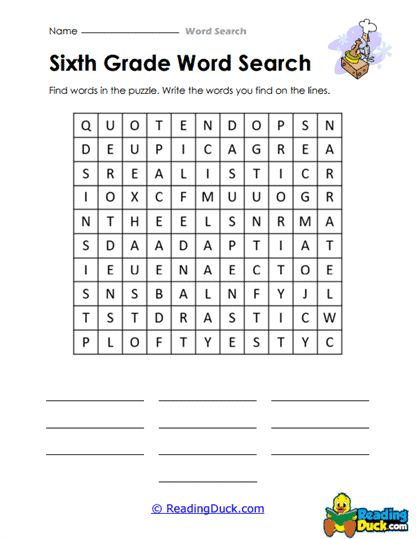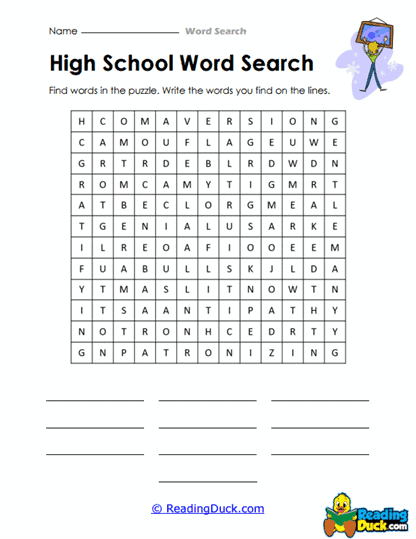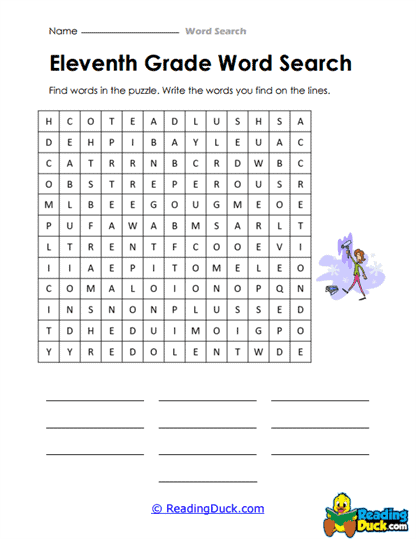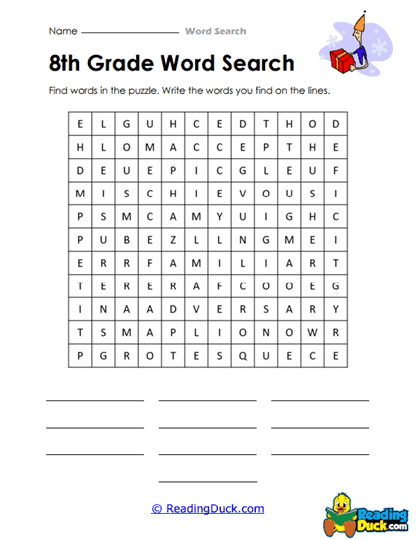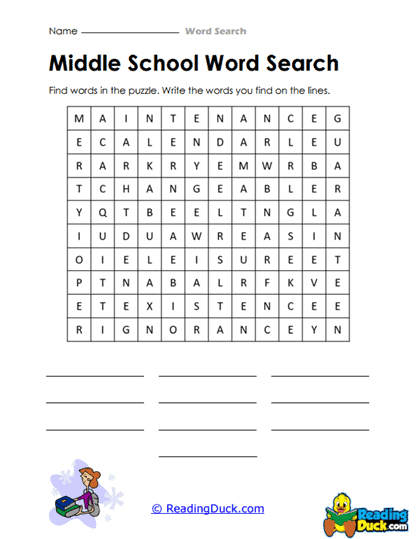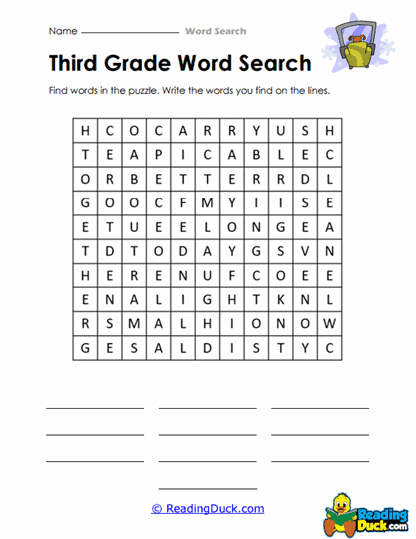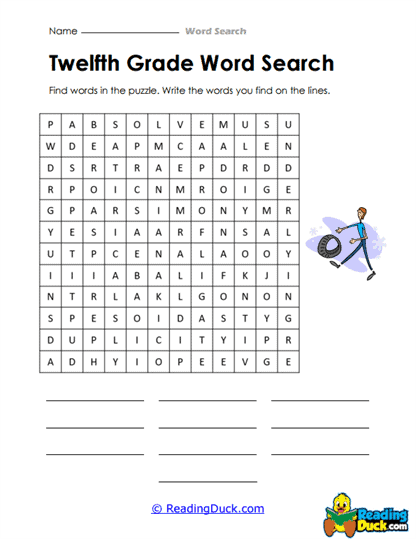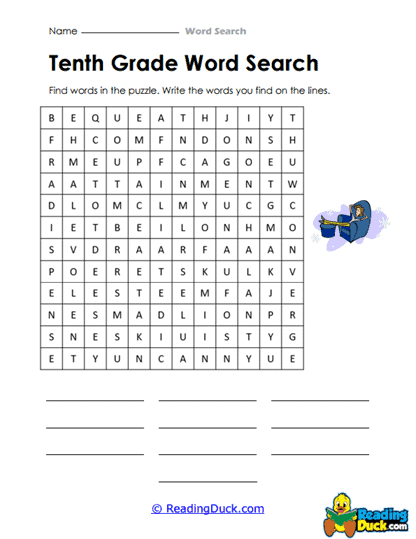Grade Leveled Word Searches Worksheets
About Our Grade Leveled Word Search
Word search worksheets are fun activities where students search for words hidden in a grid of letters. These worksheets are often designed for specific grade levels, from Kindergarten to grade 12. For younger students, the word lists might include simple, familiar words like colors, shapes, or days of the week. As students grow older, the word lists become more advanced, including terms related to subjects like science, history, or literature. Each worksheet is tailored to match the vocabulary and learning needs of students at different grades.
For Kindergarten and early elementary grades, word searches focus on building basic vocabulary and recognizing sight words. These worksheets might include bright pictures and themes like animals or holidays to keep young learners interested. In middle school, the word lists often challenge students with words tied to subjects they are studying, such as geography terms or key vocabulary for a novel. High school word searches can be even more complex, featuring advanced words and themes related to higher-level coursework like biology or Shakespearean plays.
The main goal of these worksheets is to help students learn and reinforce important vocabulary. Searching for the words in the grid helps students notice how letters and patterns work together. While it may feel like a game, word searches are a clever way to practice spelling and improve focus. Teachers and parents use these activities because they are both educational and enjoyable.
Each worksheet is customized to align with the vocabulary and skill level appropriate for the designated grade, ensuring a balance between challenge and enjoyment. The focus on writing down the located words adds a layer of literacy development, blending puzzle-solving with language reinforcement. The collection highlights the versatility of word searches as a learning tool, offering activities that enhance vocabulary, spelling, and problem-solving.
For younger learners, such as those in Kindergarten and first grade, the worksheets use simple, familiar words that introduce basic vocabulary and letter patterns. These activities are designed to strengthen foundational skills like word recognition and hand-eye coordination, while the playful themes keep children engaged. For second to fourth graders, the worksheets grow progressively challenging, incorporating slightly more complex words. These puzzles focus on building vocabulary and improving spelling while sharpening visual scanning and pattern recognition skills.
In middle school, the collection introduces more advanced vocabulary with activities like "Middle School Matrix" and "Lexicon Ladder." These worksheets are designed to support students as they expand their word knowledge and prepare for high school-level language tasks. The puzzles challenge students to recognize increasingly complex words and patterns, helping them improve their focus, memory, and cognitive stamina. Additionally, these activities encourage critical thinking, a skill vital for academic success at this stage.
High school-level worksheets, such as "Sophomore Search" and "Senior Search," cater to older students by presenting even more advanced vocabulary that aligns with their academic needs. These puzzles focus on reinforcing familiarity with challenging terms and improving spelling and word retention. By incorporating subject-relevant vocabulary, the worksheets also serve as preparatory tools for rigorous high school texts and exams. They offer a blend of entertainment and skill-building, encouraging students to engage deeply with language.
Skills Explored
Completing word search worksheets helps students improve their spelling skills. By repeatedly searching for words, students start to remember how letters are arranged to form correct spellings. This is especially helpful for young learners who are still mastering the basics of writing words. Older students benefit by becoming more familiar with the spelling of challenging or subject-specific terms.
These worksheets also help with vocabulary development. As students look for words in the grid, they often learn new terms or strengthen their understanding of words they already know. Teachers can use word searches to introduce new vocabulary in a fun way, connecting it to lessons in reading, science, or social studies. When students work on these regularly, they expand their word knowledge without even realizing they are learning.
Another benefit is improved reading skills. Searching for words in a grid helps students pay closer attention to individual letters and their positions. This boosts their ability to scan text quickly and accurately. It also builds their ability to focus, which is an important skill for reading longer books and understanding detailed instructions in schoolwork.
This type of work can develop problem-solving and critical thinking skills. Students must use strategies to find the words, like looking for common letter patterns or scanning the grid systematically. These strategies can help them become better thinkers in other areas of their education. By practicing with word searches regularly, students gain confidence in their language skills and enjoy learning at the same time.
